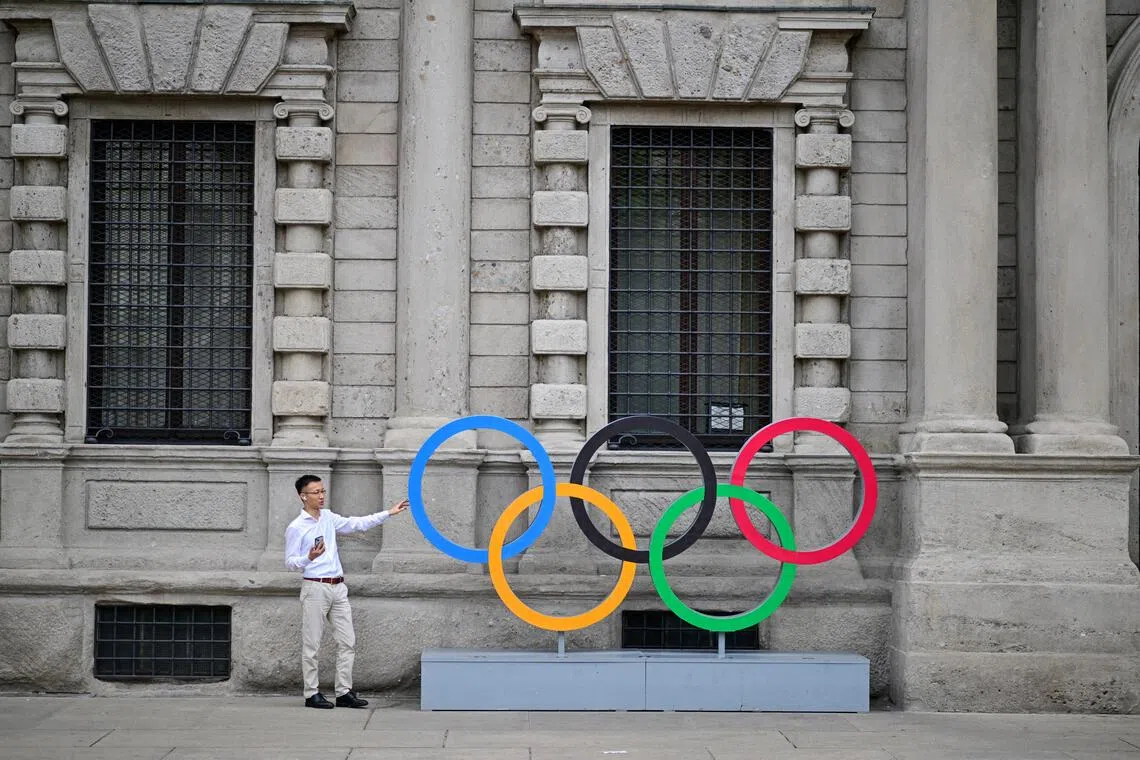Drug cheats put India’s Olympic bid and careers at risk
Sign up now: Get the biggest sports news in your inbox

The International Olympic Committee has raised concerns about the number of Indian competitors taking performance-enhancing drugs.
PHOTO: REUTERS
Follow topic:
NEW DELHI – Indian sport is battling to shake off its reputation for being one of the world’s worst doping offenders as the country pushes an ambitious bid to host the 2036 Olympics.
The International Olympic Committee (IOC) has raised concerns about the number of Indian competitors taking performance-enhancing drugs, and so too has the country’s best-known athlete.
The 2020 Olympic javelin champion Neeraj Chopra made a blunt admission earlier in 2025.
“Doping is a big problem in India among our athletes,” he told local media.
The Indian Olympic Association in August formed a new anti-doping panel after the IOC flagged India’s poor record.
The government has passed a new national anti-doping bill aiming to tighten enforcement, expand testing facilities and “ensure the highest standards of integrity” in sport.
“Obviously, the IOC would want to make sure that in awarding the Games to a country, the host has a robust doping policy and governance,” Michael Payne, former IOC marketing director, told AFP.
The World Anti-Doping Agency (Wada) lists India among the worst offenders among nations submitting more than 1,000 samples.
India’s national anti-doping agency, Nada, insists the figures reflect more aggressive testing in the nation of 1.4 billion people.
From 5,606 samples collected in 2023, 213 came back positive. In 2024, it rose to 260 from 7,466 samples. The synthetic steroid stanozolol is the most widely used banned substance taken by Indian athletes.
Despite its vast population, India has won only 10 Olympic golds in its history.
Experts say desperation to add to that and escape poverty is one reason why some Indian athletes are prepared to risk doping.
Success in sport can be a ticket to coveted government jobs, often with the police or armed forces.
That provides lifelong financial security after their sporting careers end.
“Athletes know that they can be punished but still put their careers at stake,” lawyer Saurabh Mishra, who has defended athletes in doping scandals, said.
Athletics leads India’s doping violations, followed by wrestling, where 19 athletes were recently banned.
Mishra added that some athletes are victims of ignorance, consuming banned substances through supplements or medicines, but others take risks knowingly.
Sometimes they are encouraged by their coaches to dope.
India now faces a race to prove its credibility, as it competes with the likes of Indonesia, Turkey, Chile and Qatar for the 2036 Games.
Payne noted that many past Olympic hosts had chequered doping histories.
But while doping is an issue, India’s greater obstacle to staging an Olympics lies elsewhere, he said.
“The bigger issue is confidence in the overall operational delivery capabilities of the host, and there, India has a lot of work to do,” he said.
He was referring to the corruption-riddled 2010 Commonwealth Games in New Delhi, memories of which still linger. AFP

